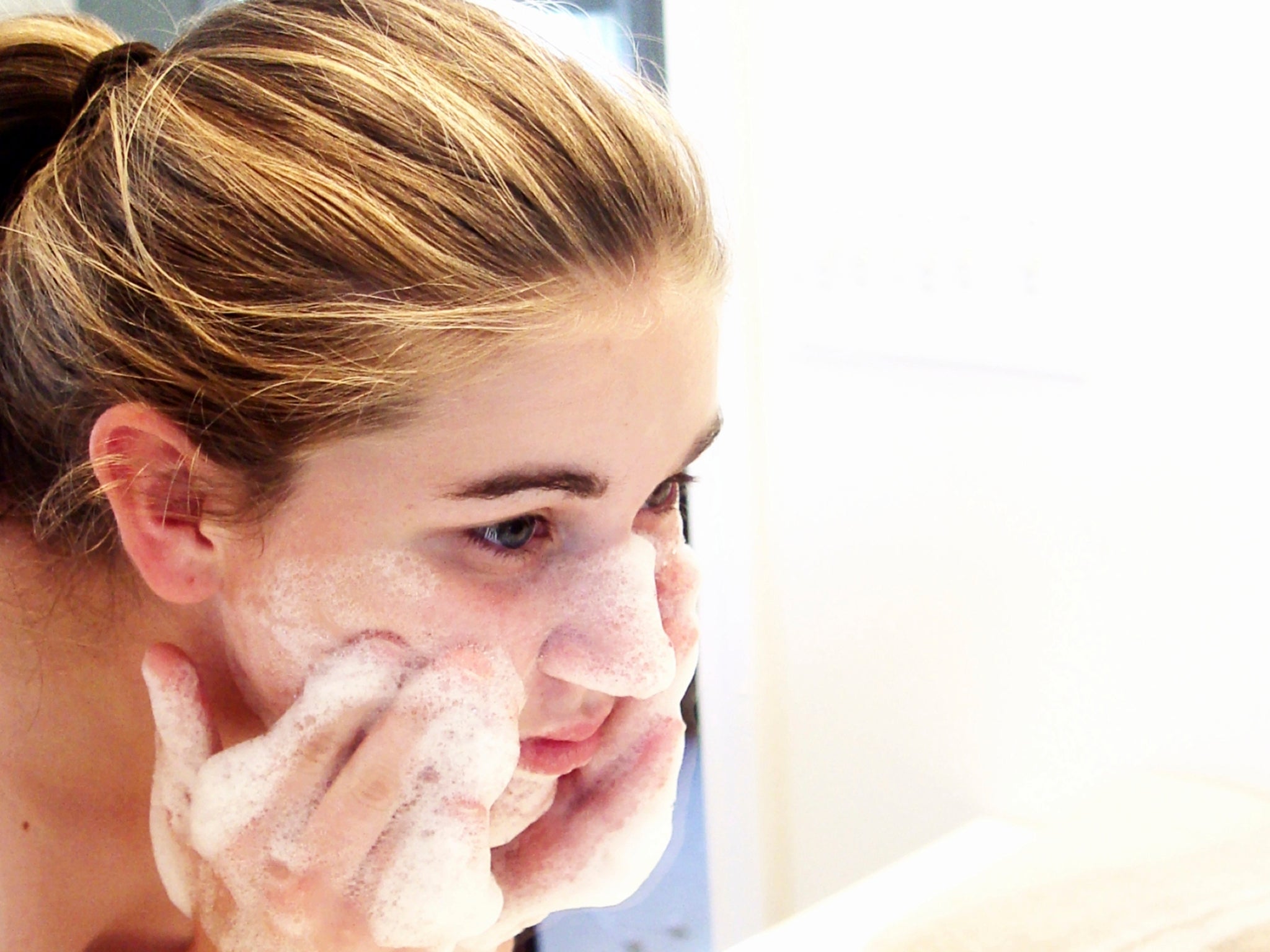Facial scrubs release 94,500 toxic microbeads in each wash, research finds
Plastic beads in facewash 'can even end up in the seafood on our plate,' says Greenpeace

Your support helps us to tell the story
From reproductive rights to climate change to Big Tech, The Independent is on the ground when the story is developing. Whether it's investigating the financials of Elon Musk's pro-Trump PAC or producing our latest documentary, 'The A Word', which shines a light on the American women fighting for reproductive rights, we know how important it is to parse out the facts from the messaging.
At such a critical moment in US history, we need reporters on the ground. Your donation allows us to keep sending journalists to speak to both sides of the story.
The Independent is trusted by Americans across the entire political spectrum. And unlike many other quality news outlets, we choose not to lock Americans out of our reporting and analysis with paywalls. We believe quality journalism should be available to everyone, paid for by those who can afford it.
Your support makes all the difference.The numbers of polluting plastic beads commonly found in everyday face scrub have been revealed by scientists.
Researchers at Plymouth University found that each time facewash is used, 94,500 “microbeads” can be released into the oceans.
The small plastic balls, also found in toothpaste, are too small to be filtered out by sewage systems before they reach rivers and seas. They are then eaten by marine life.
“It can be hard to convey in words how small these beads are and how many are released by one wash,” Richard Thompson, Professor of Marine Biology at the university, told The Sunday Times.
Microbeads are one of the fastest growing forms of marine pollution. Once eaten by one animal, they can travel up the food chain.
A petition by Greenpeace against the use of microbeads in products has been signed by more than 300,000 people.
"These plastics go straight down our drains and into the sea," Louise Edge, from Greepeace, said in a statement.
"There they can cause serious harm to marine life by being eaten and leaching out toxic chemicals. They can even end up in the seafood on our plate – the health consequences of which are still unknown."
Already illegal in the US and Canada, Greenpeace are calling on the newly appointed Environment Secretary, Andrea Leadsom, to take a stand against microbeads.
"The UK Government has already said it agrees that a ban on microbeads is the right way forward," Ms Edge said.
"Andrea Leadsom, has some big challenges ahead of her, but banning microbeads would be a simple and effective way to hit the ground running."
Join our commenting forum
Join thought-provoking conversations, follow other Independent readers and see their replies
Comments